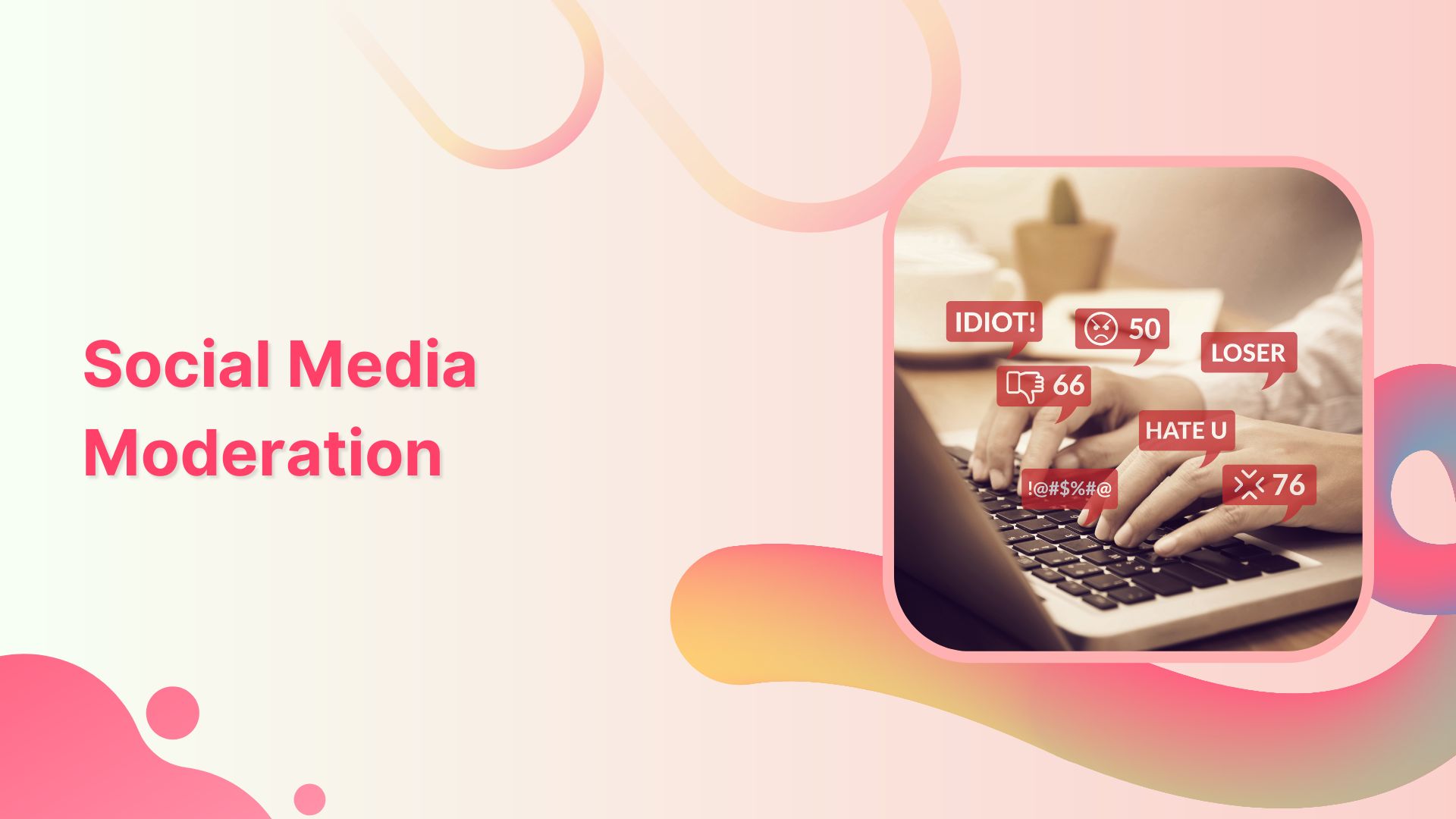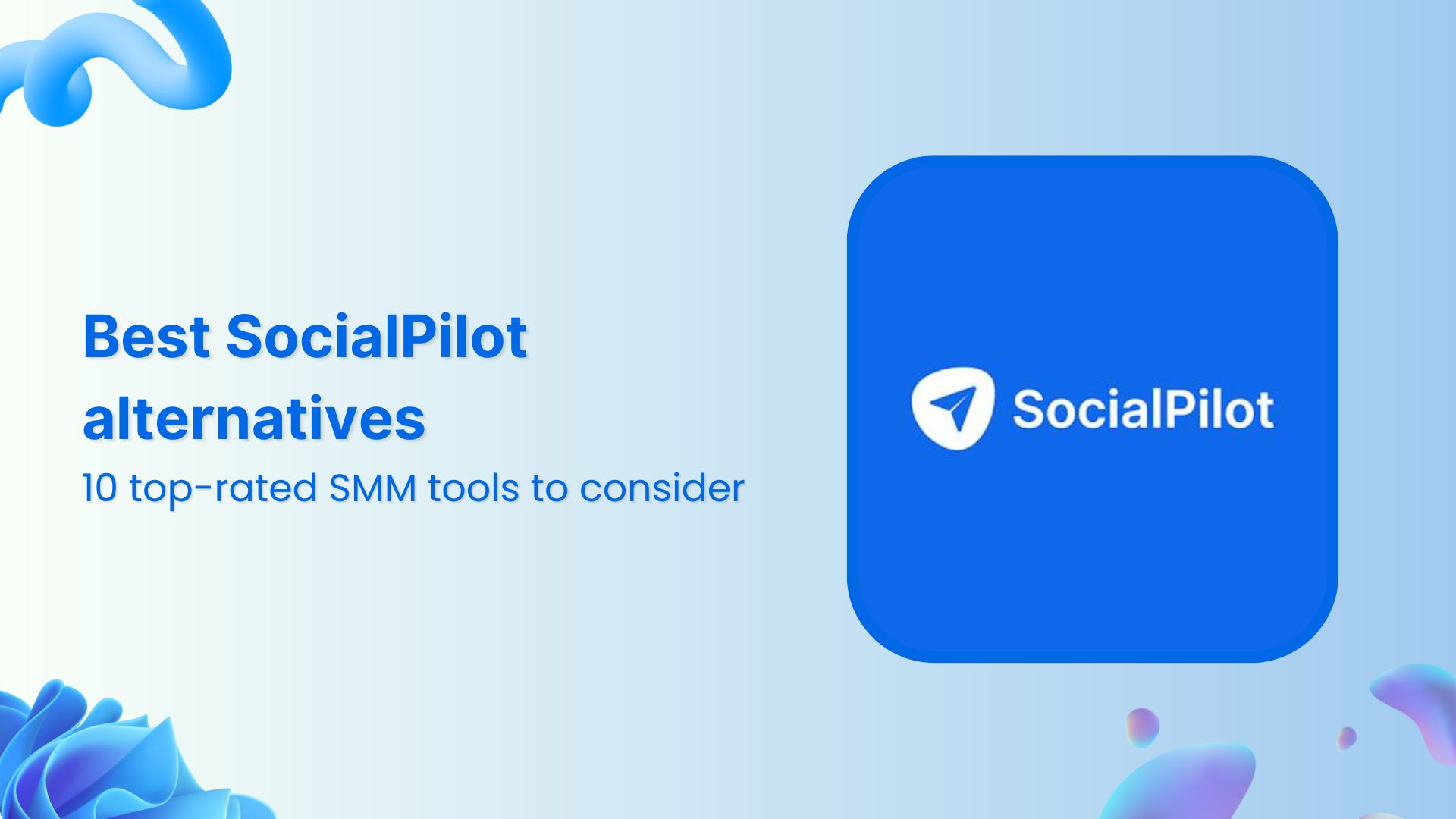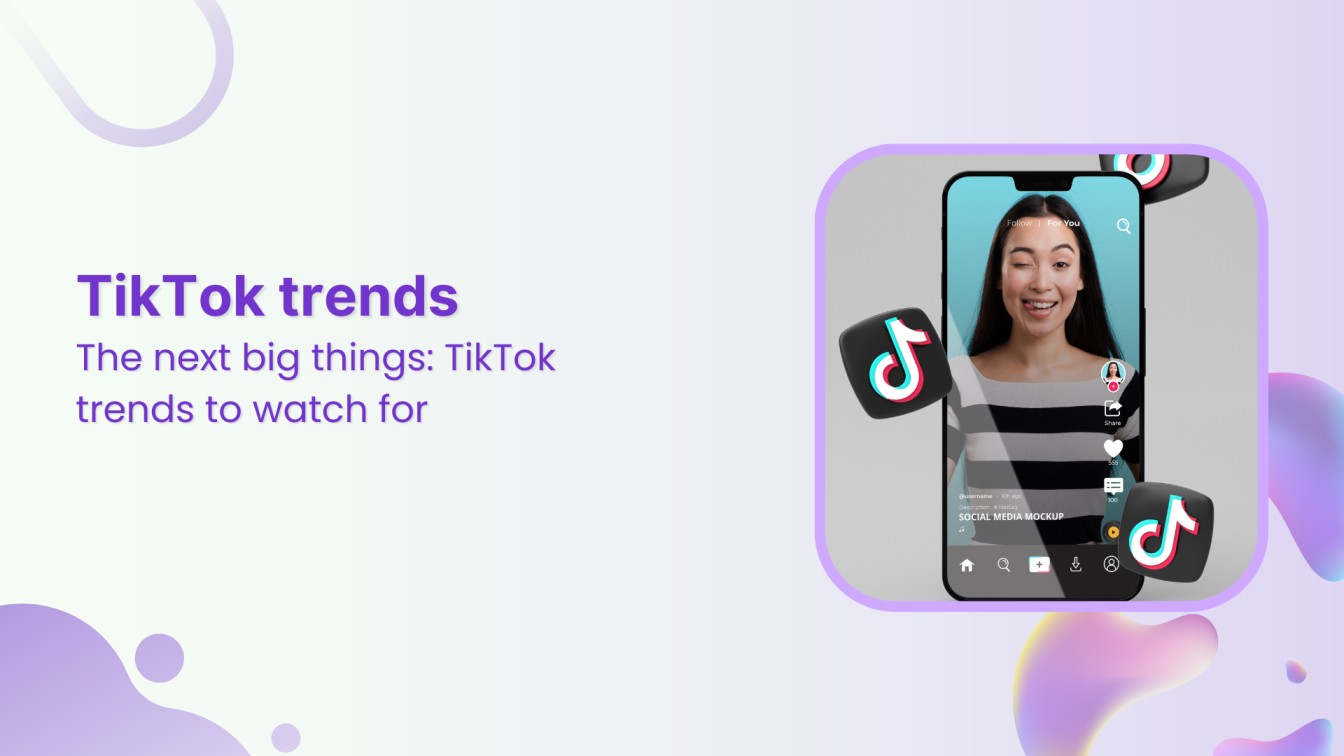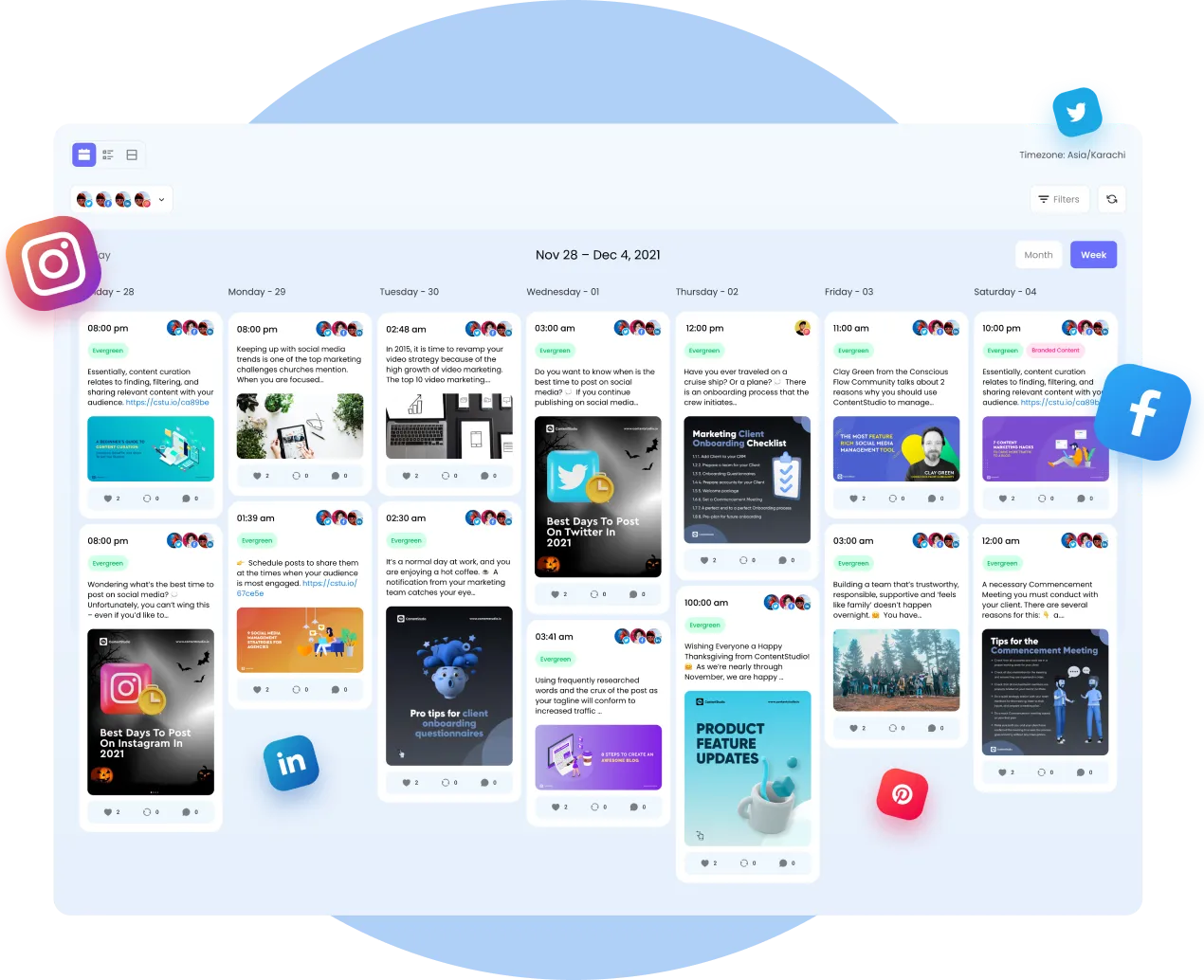In today’s global landscape, where hashtags rule and viral content reigns supreme, it’s essential to navigate the risky waters of online platforms. Figuring out where to draw the line between the freedom to speak anything and everything and not being mean, disrespectful and attacking can be quite the challenge. So, to help you out with that bit, we’ve compiled this guide on social media moderation, just for you.
Think of this as your secret weapon, your prince charming, your trusty sidekick in the battle against trolls, spammers, and all things toxic to a growing online community. Oh and don’t worry, we know social media content moderation is a BIG word.
TBH, even we were a little hazy about it when we first heard it but for your ease, we’ll explain exactly what it is in simple, easy words. Ready? Well, let’s begin our journey to social media moderation success, one strategy at a time!
What is social media moderation?



Source: Taggbox
By definition, social media moderation is the process of monitoring, regulating and managing content on social media, ensuring the presence of only wanted (positive content) information versus unwanted (negative content).
Picture this: you’re scrolling through your favorite platform, vibing to hilarious memes, jaw-dropping travel pics, and thought-provoking discussions. But hold up, what happens when some wacky person decides to rain on everyone’s parade by unleashing a torrent of hate speech or flooding the comments section with spammy links?
Yeah. That’s where social media content moderation struts onto the scene like a superhero. Think of a bouncer at a lit party, kicking out the troublemakers, and maintaining order in the online realm. Social media moderation is precisely that; keeping the conversations respectful, the content engaging, and the vibes positive. All the time.
Why is social media moderation important?
But I know what you’re thinking. Why don’t I just let the spammers and bad peeps be? What harm could they possibly do to me and/or my business? Why go through so much trouble and work just to moderate all of it? Well, here’s why.



Source: crisp thinking
a. Protecting brand reputation
Imagine you’re a company that’s built a killer social media brand with a dedicated online following. Your social media pages are buzzing with loyal fans and potential customers. But uh-oh, out of nowhere, a disgruntled customer takes to your Facebook page and starts spewing negativity, dissing your products or services for the whole world to see. Ouch! Without effective moderation, that negativity can spread like wildfire, tarnishing your hard-earned reputation. Social media moderation ensures you swiftly tackle such situations, respond to negative comments, and manage the online narrative to protect your brand’s image.
Wendy’s is a great example of this. The fast-food chain is known for their sassy Twitter comebacks. Their witty and timely moderation responses have garnered the attention of many and boosted their twitter marketing strategy.
b. Ensuring user safety and well-being
Social media isn’t just about cute cat videos and dazzling travel snaps. It’s also a breeding ground for online harassment, bullying, and hate speech. Without proper moderation, your platform can quickly turn into a toxic wasteland, driving users away and causing emotional distress.
Take the case of Caroline Criado-Perez, a British activist who faced relentless online abuse after campaigning for women to appear on UK banknotes. The onslaught of hateful comments and threats took a severe toll on her mental well-being. Social media moderation plays a vital role in creating a safe space, enforcing community guidelines, and swiftly addressing harmful content to protect users from such traumatic experiences.
c. Complying with legal requirements
Laws and regulations surrounding social media are evolving rapidly, and failing to comply can have serious consequences. Whether it’s privacy laws, copyright infringements, or the removal of illegal content, social media platforms need to stay on top of their game.
Take the European Union’s General Data Protection Regulation (GDPR), which enforces strict rules on the collection and processing of user data. Failure to adhere to these regulations can result in hefty fines and a major blow to your platform’s reputation. Effective social media moderation ensures you’re in the clear, keeping your platform compliant and avoiding legal troubles.
Strategies for effective social media moderation
Here are some kickass strategies to level up your social media moderation game and keep the trolls at bay. Get ready to rock and roll!
1. Lay down the law
Ain’t no party without some ground rules, right? Establish crystal-clear community guidelines that leave no room for confusion. Show your users what’s cool and what’s not, like a digital bouncer laying down the smack. Take inspiration from Airbnb, whose community guidelines set the tone for respectful behavior and ensure a delightful hosting experience.



2. Hunt down trouble
Be a social media detective and sniff out trouble before it spreads like wildfire. Stay on top of your competitors by using badass tools and filters that automatically flag and zap nasty content. But don’t rely solely on AI generated content; your human touch is crucial. Consider Twitter’s algorithm, for example. They mix AI algorithms with good old-fashioned human moderation to combat hate speech and harassment, making their platform a safer space.
3. Swift and savvy responses
When sh*t hits the fan, it’s time to show off your response game. Be quick on the draw, providing effective customer support services with a dose of professionalism and finesse. Netflix’s Twitter squad is major inspo for this. They unleash witty comebacks faster than you can say “binge-watch.” Their lightning-fast responses turn potential disasters into viral wins.



Social Customer Service
Never miss a message or comment from your social media audience. Try ContentStudio’s Inbox.
Get Started for FREE


4. Positive vibes only
Foster an environment where rainbows and unicorns reign supreme. Highlight and promote positive content that spreads good vibes like confetti and give shoutouts to users who bring the sunshine with their uplifting posts. Look at Instagram’s “Explore” page, where they curate content based on user preferences, exposing them to a world of positivity and inspiration.
5. LOLs and smiles
Laughter is the best moderation medicine, trust me. Inject humor and wit into your responses when appropriate. It’s like wielding a meme sword that slays negativity with a dose of laughter. Again, you’ve GOT to check out Wendy’s Twitter account for a masterclass in sassy comebacks. Not only do they shut down haters but they also generate viral buzz.



Read More: How Brands Boost Twitter Engagement With Humor
6. Educate and empower
Be the guiding light in the social media wilderness. Share educational resources, tips, and reminders about online safety and responsible behavior. Teach users how to navigate the digital realm like a boss. Take YouTube’s Creators Academy, where they provide tutorials and insights to empower creators with knowledge and skills.



7. Stay in the know
Keep your finger on the pulse of platform policies. Stay updated with the ever-changing rules and guidelines of social media trends. One false move can lead to a PR nightmare. Remember Facebook’s Cambridge Analytica scandal? Stay informed to ensure your moderation practices are on point and compliant.
8. Unleash the power of the community
Don’t fight the trolls alone. Recruit your users as allies in the moderation battle. Encourage them to report violations and provide feedback. Engage them in shaping the community guidelines and platform policies. Reddit does this beautifully, with active user moderation and subreddit-specific rules that promote self-regulation within their vast communities.
Best practices for social media moderation
Wondering which, out of all those strategies are the best practices for mastering the art of social media moderation, especially for you? I’ve got the gems below!
1. Be proactive, not reactive



Source: WhatsUp Gold
Don’t wait for trouble to knock on your virtual door; kick its butt before it even gets close! Stay on top of your game by actively monitoring your social media platforms for any signs of trouble. For this, you can use social media management tools and set up keyword alerts to catch potential issues early on. By nipping problems in the bud, you’ll be able to have a positive online space and prevent small sparks from turning into raging fires.
2. Embrace the power of moderation guidelines



Example of social media moderation guidelines by Twitch
Lay down the law and let everyone know the rules of the game. Create well-defined and easily accessible community guidelines that outline acceptable behavior, content policies, and consequences for violations. These guidelines basically act as your armor, giving you a solid basis to moderate effectively and consistently.
3. Foster engagement and positive interactions
Don’t just moderate; actively cultivate a thriving online community. Encourage users to engage with one another in a positive and constructive manner. Like and share content that aligns with your platform’s values, and respond to comments and messages promptly. By nurturing positive interactions, you’ll create an environment where users feel valued, supported, and inspired to contribute meaningfully.



Source: meta facebook
4. Empower your users



Modview letting users support their favorite streamers on Twitch
Life hack: Never underestimate the power of your user base. The more you grow, things like social media moderation will get much harder to manage on your own. So instead, play it smart and encourage your audience to be your moderation allies. Try to establish a culture where users feel empowered to hold each other accountable, promoting a self-regulating community as a result. Look to platforms like Twitch, where active moderation by streamers and viewers helps maintain a positive and inclusive environment for gamers and content creators alike.
5. Stay transparent and communicate



Communication is key when it comes to social media moderation. Be transparent with your community about your moderation policies, processes, and any changes or updates. Clearly communicate the ‘whys’ behind the ‘whats’ and give users a platform to speak out if they believe their content was wrongly moderated. Remember, keeping the lines of communication open builds trust, shows fairness, and helps maintain a healthy relationship between you and your users.
Challenges in social media moderation
Now look, no one said social media moderation was a piece of cake (because it definitely ain’t!). When starting out, especially, you are *bound* to face a number of challenges. Yep. I know. It sucks but it’s the truth. Some of these might seem like a never-ending nightmare while some may make you think “Huh? THIS is a problem?” Regardless, I’m gonna name a few of these challenges + how you can overcome ‘em. Fair enough? Let’s begin.
Taming the trolls
Every social media platform, and I mean every, has its fair share of trolls—keyboard warriors who thrive on spreading negativity. These people can disrupt discussions, throw personal attacks, and generally wreak havoc. Take Twitter, for instance. The anonymity of handles often results in trolls unleashing their venomous words.



How to deal with it: Dealing with trolls requires a proper balance of quick responses, firm moderation, and a sprinkle of witty comebacks to keep the peace and maintain a positive community vibe. Try to find out what works for you and how much by exploring each method and you’ll be okay.
Walking the content tightrope



An example of controversial content
Moderating content sure can be a high-wire act. Striking the right balance between free expression and maintaining community guidelines is very very hard. Social media platforms have to navigate through a whole minefield of controversial topics, sensitive discussions, and potential legal implications. Just ask YouTube. The platform faced scrutiny for content moderation policies surrounding controversial figures and their impact on misinformation and hate speech.
How to deal with it: Try to make fair decisions, accommodate diverse perspectives, and avoid biases as best you can while keeping the platform safe and inclusive. Remember, no one’s perfect so try to do your best and don’t fret on the rest (crazy how that rhymed, LOL.)
Staying ahead of evolving tactics
As technology evolves, so do the tactics of those who look forward to exploiting it. Nasty users are constantly finding new ways to bypass filters, spread harmful content, and engage in deceptive practices. From fake news to coordinated false campaigns, staying one step ahead is ESSENTIAL.



Source: Amanda Galal
How to deal with it: Try to constantly adapt your moderation strategies, harness the power of AI and machine learning if needed, and collaborate with cybersecurity experts to combat these evolving challenges.
Social Media Analytics
Fine-tune your social media strategy for success with in-depth analytics and white-labeled reports.
Get Started for FREE


Handling the delicate dance of freedom of speech



Source: IESE Blog
Social media is a melting pot of diverse opinions, beliefs, and ideologies. While freedom of speech is a basic right, it also raises concerns in moderation. The line between healthy debates and hate speech or harmful content can become very thin at times. Look at Facebook, for example. It faced criticism for its handling of controversial content and its impact on real-world events.
How to deal with it: Try your best to strike a balance between promoting a diverse range of perspectives and keeping the space safe, respectful, and free from harmful rhetoric.
Dealing with content volume and scale
Social media platforms are bustling metropolises swarming with user-generated content. Moderators are often tasked with filtering through an endless stream of posts, comments, and messages, making it somewhat challenging to catch every violation.
How to deal with it: The challenge becomes harder for smaller platforms with limited resources. Try to find a balance between social media automation and human moderation to efficiently tackle this ever-growing content surge.
Wrapping up
In the end, social media moderation is sure as heck no walk in the park, you deff don’t need to worry over it. The strategies and practices we’ve mentioned will help you a great lot in dealing with pesky troublemakers, waiting to spoil the fun. Remember, all it takes sometimes is a couple of wit and quick responses to show ’em who’s boss.
And yes, we know how balancing freedom of speech and community guidelines can feel like walking on a tightrope, but we also know you’ll find that sweet spot in no time. Stay ahead of the game, adapt to new challenges, and never forget the power of your community. And watch your online space become one where positivity can thrive. You’ve got this!
FAQs:
Q: What qualities should a content moderator have?
A content moderator should have a sharp eye for detail to identify any potential violations of community guidelines or legal requirements, the ability to set aside personal biases and make fair decisions based on the policies decreed and strong ethical judgement to ensure responsible navigation of controversial and sensitive content.
Q: What are the main problems around content moderation?
The main problems around content moderation include striking the right balance between freedom of speech and limiting harmful content, handling the large amount of user-generated content, dealing with evolving tactics used by malicious users, and addressing potential biases in moderation decisions. Plus, content moderation often requires addressing legal and cultural challenges across different regions, making it a complex and ever-evolving task.
Q: Is social media moderation needed?
Y-E-S! Social media moderation is crucial to maintain a safe and positive online environment. It helps protect users from harassment and hate speech, and fosters a respectful and inclusive space for all. Without moderation, social media platforms can become breeding grounds for toxicity and misinformation in no time. So, yep, social media moderation is definitely needed to create that thriving and enjoyable online community we all desire.
Fabeeha Alam
Fabeha is a martial arts enthusiast and animal lover who's always ready to take on new challenges. When she's not practicing her kicks and punches, she's out making new furry friends or discovering a new hobby.







